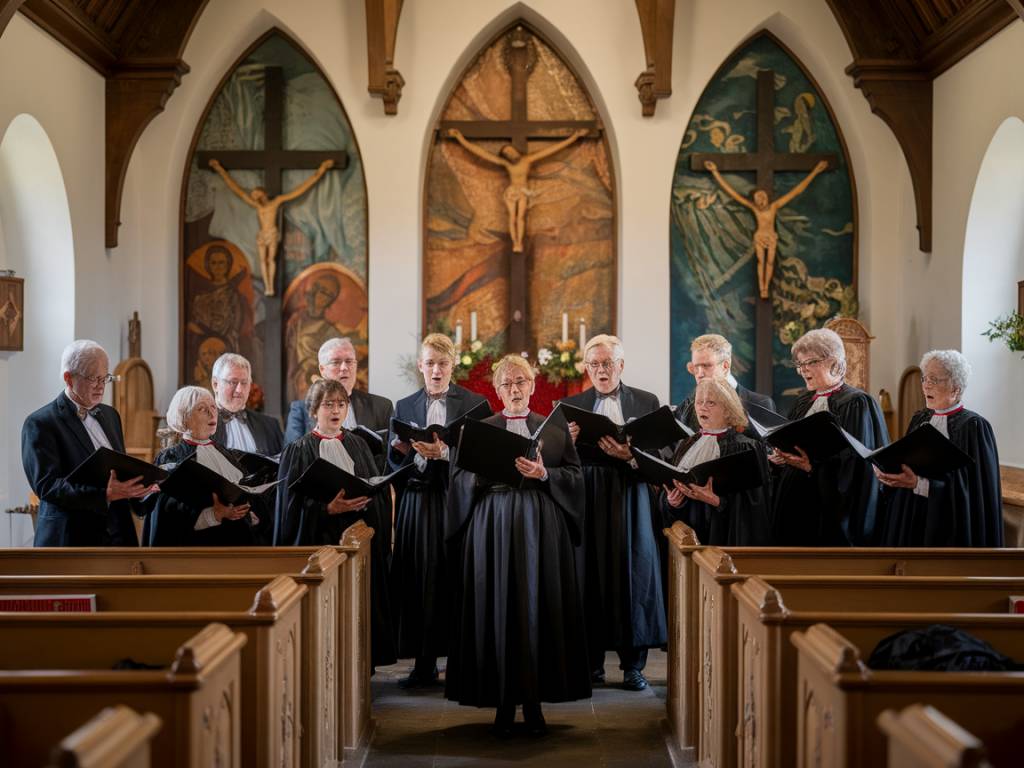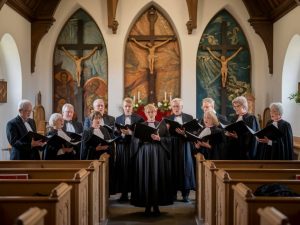Music and its influence on Welsh national identity

Music and its influence on Welsh national identity
Wales is often referred to as the « Land of Song, » and for good reason. From haunting folk ballads sung around warm hearths to rousing male voice choirs resonating through chapel walls, music has been a cornerstone of Welsh culture for centuries. But beyond its beauty and charm, the role of music in shaping and reinforcing Welsh national identity is both profound and fascinating. So, what is it about the melodies of Wales that binds its people so closely and stands as a symbol of identity and pride? Let’s dive into this harmonious history.
The Ancient Roots of Welsh Music
The story of music in Wales begins long before national identities were formalized. In the medieval period, the bardic tradition played a central role in Welsh society. Bards were much more than entertainers; they were the custodians of history, storytellers, and keepers of oral traditions. Through their songs and harp accompaniments, they preserved genealogies, chronicled battles, and celebrated the uniqueness of Wales in a way that no written record could match.
Even today, echoes of this bardic tradition are felt in the celebration of events like the Eisteddfod, an annual festival of literature, music, and performance that traces its origins back to the 12th century. Can you imagine a talent show with roots almost a millennium old? Only in Wales!
Choirs and Communities
When someone mentions Welsh music, male voice choirs often spring to mind. These choirs emerged during the 19th century, a period of industrialization and upheaval in Wales. As miners and laborers faced grueling work conditions, singing became both a solace and a form of solidarity. Miners would gather after long shifts to sing together, their harmonies a testament to shared struggles and camaraderie. Over time, these choirs evolved into a defining feature of Welsh culture.
The songs performed often carry deep national and emotional resonance, from hymns such as « Calon Lân » to patriotic anthems like « Hen Wlad Fy Nhadau, » the Welsh national anthem. When sung by a choir, these pieces become more than just songs—they transform into collective expressions of identity and shared memory. Who hasn’t felt a shiver down the spine when hearing a crowd in Cardiff’s Principality Stadium belt out the anthem before a rugby match?
Folk Music: The Voice of the People
If choirs reflect the collective spirit of Wales, then Welsh folk music represents its individual soul. Instruments like the harp, fiddle, and crwth (a traditional Celtic string instrument) weave intricate stories of love, loss, and longing. Unlike the grand settings of choral music, folk songs are often intimate, performed in homes, inns, and small gatherings.
One poignant example is « Ar Hyd y Nos » (« All Through the Night »), a lullaby so evocative that it has transcended borders to become globally recognized. It’s hard to listen to its melody without feeling a sense of timeless connection to the land and its history.
Interestingly, folk music also played a crucial role in language preservation. During periods when Welsh culture and the Welsh language were under threat, songs passed down from one generation to another ensured that these elements stayed alive. In this way, folk music became both a form of resistance and resilience.
Music and the Welsh Language
Speaking of language, it’s impossible to discuss Welsh music without acknowledging the role of the Welsh language itself. While the dominance of English in the UK has, at times, threatened the survival of Welsh, music has been a steadfast protector of the language. Whether through traditional hymns or contemporary pop songs, music has kept the language alive in the hearts of the people.
Take Cerys Matthews, for instance, the former lead singer of Catatonia. Her work, blending Welsh and English, brought Welsh language music to international attention in the 1990s. And who could forget the emergence of the « Cool Cymru » movement, where bands like the Super Furry Animals championed bilingual lyrics? Even today, Welsh music festivals such as the National Eisteddfod promote language use, proving that Welsh isn’t just a relic of the past but a thriving, modern force within music.
Music as a Symbol of Resistance
The power of music as a tool of resistance cannot be understated. During the industrial era and the subsequent decline of traditional industries in 20th-century Wales, music became a means of protest against cultural and economic marginalization. Songs not only reflected the hardships faced by the Welsh working class but also served to rally communities together in their fight for recognition and rights.
A standout example comes from the anti-apartheid movement: Welsh singers lent their voices to protests, most famously during the recording of « Hen Wlad Fy Nhadau » by a mass choir at Cardiff Arms Park in the 1980s, supporting Nelson Mandela. Acts like this showed that Welsh music could amplify voices of justice and equality—not just at home, but across the world.
The Modern Welsh Music Scene
Today, the musical landscape of Wales is as diverse as its natural scenery. From indie rock sensations like Manic Street Preachers to folk artists such as 9Bach and internationally renowned classical performers like Bryn Terfel, the richness of Welsh music knows no bounds. Every category and genre represents a new chapter in the ongoing narrative of Wales’ identity.
Festivals like Focus Wales continue to shine a spotlight on the breakthroughs in the Welsh music scene, proving that Wales remains a fountainhead of creativity. And let’s not overlook social media, which has enabled a global audience to discover emerging Welsh talent, further reinforcing the nation’s image as a vibrant cultural hub.
National Identity in Every Note
When you think about it, Welsh music is much more than chords and lyrics—it’s an archive of the nation’s history, a celebration of its cultural resilience, and a source of immense pride. From the medieval bards to today’s bilingual pop stars, the way Wales tells its story through music is unparalleled. Every song, every melody, every harmony carries with it a piece of the Welsh spirit.
So, next time a choir’s harmonies or a folk melody brings a tear to your eye, remember: you’re not just hearing music. You’re hearing the history and soul of a nation that has sung its identity into existence. Isn’t that a story worth listening to?





